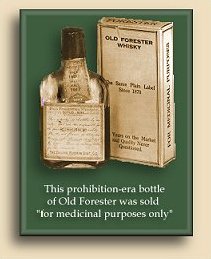


He evidently survived retribution, but died in 1779, mentioning his wife Mary, son Anthony Jr., and “negro” Nancy in his will. tavern, in the first years of the American Revolution, Anthony Fortune found himself under investigation for supposed Tory sympathies. A tavern signboard on the same block of Shippen Street pictured a sailor and a woman with the motto: And the stables that adjoined the tavern probably made it a convenient stopover for hunting parties bound for the meadows and marshes south of the city, in the area called the “Neck.”Īlthough a wealthier class of patrons frequented the White Horse, there is little doubt that seamen and laborers could be also found in the bar room. as well as to the market shambles at 2nd and Lombard. It was a convenient spot for a drinking establishment Fortune advertised that the White Horse was quite near to the “new theatre” (later called the Southwark Theatre) on South St. A grass lawn adjoined the tavern, and remained open for another quarter of a century. stood in an almost rural setting, with few buildings in the vicinity. 15, 1775, edition of the Pennsylvania Gazette: “Anthony Fortune, Late Keeper of the Fountain-Inn in Chestnut-street, Having experienced extraordinary Marks of the Public Favour during his residence there, esteems it his Duty to return his most grateful Acknowledgments to every Individual who has been pleased to favour him with his Custom and while he pays this Tribute of Gratitude, he begs Leave to acquaint his Friends, and the Public in general, that he hath removed into Shippen-street, next Door to the Corner of Third-street, near the New-market, where he hath erected elegant and commodious Buildings, and provided every Requisite for STABLING HORSES after the best and most approved Manner.”Īt the time, the tavern on Shippen St. The owner of the new White Horse advertised his grand opening in the Feb. This was one of the largest taverns in the city, situated on the corner of Chestnut Street and White Horse Alley (now Bank St.), and containing a stable that could hold 60 horses.** It was probably Fortune who carried the name White Horse to the establishment on Shippen St. Fortune had previously managed the Three Tuns tavern (also known as the Fountain and as the White Horse). In that year, a deed was signed in which tavern-keeper Thomas Cash sold the buildings to another tavern keeper, Anthony Fortune. On at least one occasion, even the president of the United States, John Adams, was entertained in Ball Alley.īuildings on the site were constructed in the 1760s, and were probably used as a tavern before 1775. In former times, the street was called Ball Alley, which described its function-men gathered there for ball games, drink, and gambling. Although the buildings are gone now, one feature of the tavern remains-the little intersecting byway called Orianna St. The tavern occupied several buildings on the north side of Shippen, just west of 3rd St. (now Bainbridge St.) in Philadelphia’s suburban district of Southwark. Over two centuries ago, the White Horse tavern-later renamed the Black Bear-was a popular place of amusement on Shippen St.


 0 kommentar(er)
0 kommentar(er)
